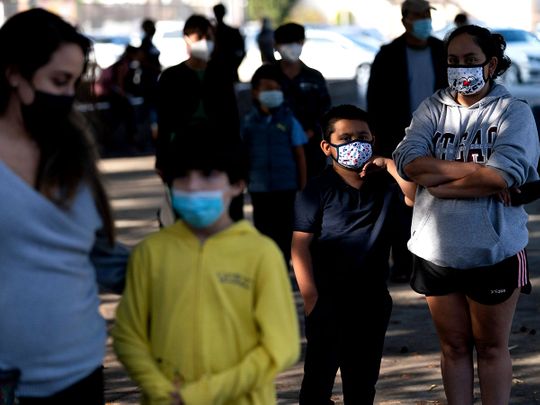
UK study finds more Omicron hospitalisations in youngest children, but cases mild
London: Young children and babies are proportionally more likely to be hospitalised with Omicron compared to older children than with previous variants but the cases are still mild, British researchers said, adding the overall picture was reassuring.
Omicron has spread rapidly in Britain and fuelled a spike in cases to record highs, though the variant is less severe than previous ones, and high vaccination levels among adults have also helped to limit the rise in hospitalisations. Children are less vulnerable than older adults to COVID-19.
The study released on Friday, which was shared with government advisers, found there had been an increased proportion of young children admitted to hospital in the last four weeks, driven by babies under one.
Of children hospitalised with COVID-19, 42% were under 1, compared to around 30% in previous waves, the early data showed, though the researchers emphasised that the illnesses were mild.
"These are not particularly sick infants. In fact, they're coming in for short periods of time," study author Calum Semple, Professor in Child Health and Outbreak Medicine, University of Liverpool, told reporters, adding that the proportion requiring oxygen was falling.
The vaccination of over-12s might explain some of the proportional fall in older children going to hospital, Semple said, but it doesn't explain it all.
Russell Viner, Professor of Child and Adolescent Health, UCL, said that the trend was likely in part because Omicron symptoms might resemble the sort of respiratory conditions that would encourage parents to bring in babies to hospital as a precaution, whereas clinical pathways for older children would not bring them to hospital with such mild symptoms.
He added that the data was very early and could change.
"A very rapid review of clinical data is extremely reassuring," Viner told reporters.












